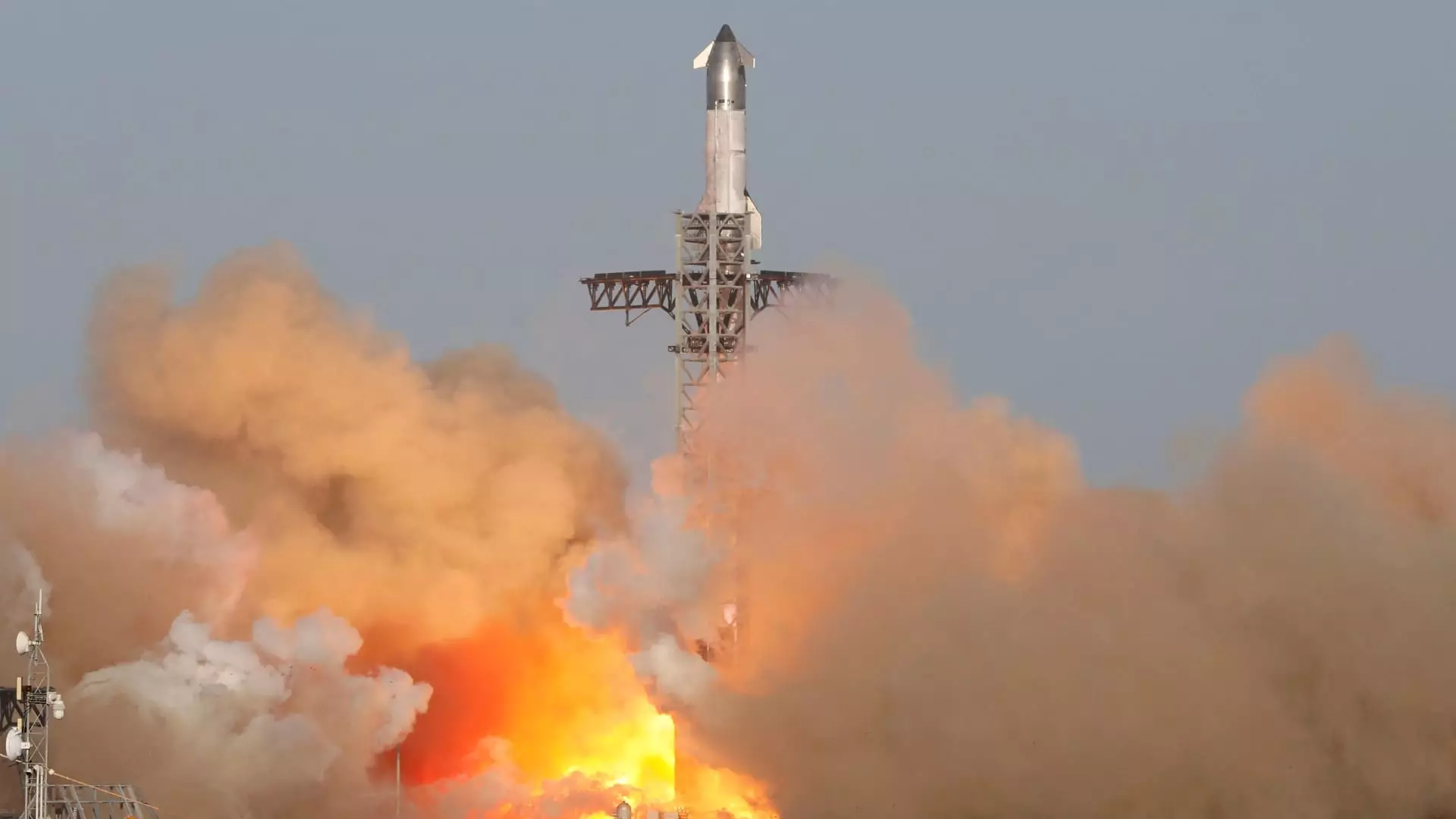On a seemingly routine Thursday night, the world witnessed yet another setback in the grand ambitions of SpaceX, when the spacecraft known as Starship met with a catastrophic failure during its eighth test flight. This incident, reminiscent of a previous mishap earlier this year, not only halted numerous flights across several Florida airports but also reignited concerns over the balance between rapid innovation and public safety. As the Federal Aviation Administration (FAA) swung into action, halting operations at major commercial hubs such as Miami International Airport and Fort Lauderdale, the question looms large: are we prioritizing progress at the expense of adequate safety protocols?
The FAA’s immediate response included activating debris response measures, effectively interrupting normal flight operations to safeguard those in the air. This becomes a frightening narrative for the aviation industry that must coexist with the ambitious plans of private space firms like SpaceX. This incident serves as an sobering reminder of the inherent risks tied to aerospace innovation, particularly within densely populated regions.
Regulatory Failures on Display
It is notable that the FAA had previously cautioned SpaceX about the dangers associated with its testing regime. Given that this is the second time debris from a SpaceX launch has prompted diversions and safety warnings, one has to question the regulatory framework that permits such flights to occur without thorough risk assessments being completed. Are we simply allowing SpaceX, led by the controversial Elon Musk, to operate with a level of operational freedom that disregards critical safety measures?
This dichotomy highlights a troubling relationship between innovation and regulation. While innovation should ideally push the envelope, it must not do so recklessly. The FAA’s requirement for a thorough mishap investigation is a step in the right direction, but it poses questions about why preventative measures were not fully enforced before the flight took off.
The Intersection of Politics and Space Exploration
The conversation surrounding SpaceX is not just a technological discourse but a deeply political one as well. Elon Musk’s affiliation with former President Trump as a senior advisor raises red flags for many, particularly within a Democratic framework concerned about conflicts of interest. The apparent enablement of SpaceX by regulatory bodies—while being spearheaded by a politically charged figure—positions the aerospace giant in an ethically precarious situation.
One must wonder if the aspirations of privatized space exploration are leading us to a troubling decrease in accountability. The public deserves assurances that safety and security concerns are at the forefront of these pioneering endeavors. Musk’s ambitious vision must be tethered to responsibility, for unchecked power often leads one down a perilous path, both in space and on the ground.
Public Safety vs. Corporate Interest
In this era of collision between corporate interests and public safety, the recent Starship failure paints a bleak picture of where we stand. The aviation community is one of the cornerstones of modern civilization, facilitating global connectivity while prioritizing safety. Yet here we are, facing disruptions not from natural disasters or hazards but from the reckless pursuits of private space companies.
Furthermore, the competitive airspace above Florida—one of the busiest in the world—exemplifies a shocking truth: bureaucratic caution often takes a backseat to corporate ambition. The FAA’s sporadic intervention in this scenario indicates a troubling trend where business interests may overshadow the imperative of maintaining public welfare.
Moving Forward with Caution
As SpaceX continues to dominate headlines, the onus falls on regulators, policymakers, and industry leads to ensure that ambitious exploits do not come at the cost of safety. The mix of technological marvel and accountability is a delicate one, and the ramifications of neglecting proper oversight could be dire. The public supports innovation but demands responsibility. Fostering an environment where ambition resides harmoniously with accountability is paramount.
As we look to the skies, celebrating human ingenuity and progress should not eclipse the fundamental duty of care we owe one another. Exploring new frontiers cannot come at the immense cost of human lives and livelihoods—all must focus on building an ecosystem where safety and innovation extend hand-in-hand. It’s time for collective action, lest we find ourselves facing the fallout from hubris.

